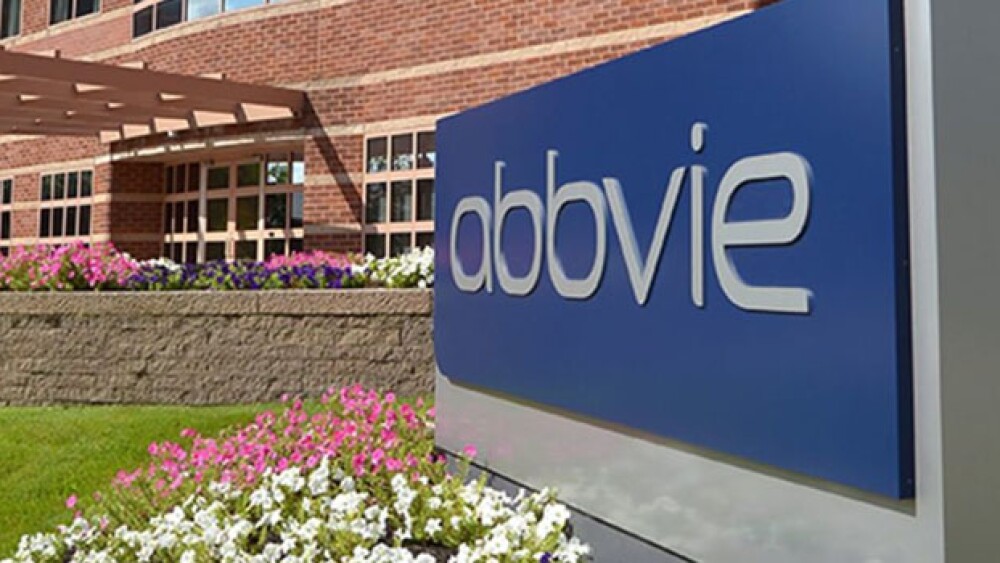AbbVie could be eyeing another potential billion dollars of annual revenue following the accelerated approval of Venclexta for the treatment of newly-diagnosed acute myeloid leukemia (AML) in adults who are age 75 years or older or who cannot tolerate intensive chemotherapy.
AbbVie could be eyeing another potential billion dollars of annual revenue following the accelerated approval of Venclexta for the treatment of newly-diagnosed acute myeloid leukemia (AML) in adults who are age 75 years or older or who cannot tolerate intensive chemotherapy.
The Illinois-based company announced that the U.S. Food and Drug Administration (FDA) granted accelerated approval for Venclexta, a B-cell lymphoma-2 (BCL-2) inhibitor, for the AML indication. Venclexta has been jointly developed by AbbVie and Roche. The FDA gave approval to the oral drug in combination with azacitidine, or decitabine, or low-dose cytarabine (LDAC). The treatment was approved for the AML patients age 75 and up, or those patients who have comorbidities that preclude the use of intensive induction chemotherapy. For AML patients who cannot tolerate intensive chemotherapy, the median survival is between five and 10 months.
Acute myeloid leukemia is a progressive cancer that forms in the bone marrow. According to the National Cancer Institute at the National Institutes of Health, approximately 19,520 people will be diagnosed with AML and approximately 10,670 patients with AML will die of the disease in 2018. Almost half of the adults diagnosed with AML are not treated with intensive chemotherapy because of comorbidities and chemotherapy-related toxicities.
The accelerated approval of Venclexta was based on two open-label trials, M14-358, a trial evaluating Venclexta in combination with azacitidine or decitabine, and M14-387, a trial testing the combination of Venclexta and LDAC. The M14-358 showed a combination of Venclexta and azacitidine resulted in a complete response rate (CR) of 37 percent and a CR with partial hematologic recovery (CRh) rate of 24 percent. The combination of Venclexta and decitabine showed a CR rate of 54 percent and a CRh rate of 7.7 percent. The median follow-up of patients in this trial was 7.9 months and 11 months, respectively.
In the M14-387 trial, the combination of Venclexta and LDAC showed a CR rate of 21 percent and a CRh rate of 21 percent. The median follow-up of patients was 6.5 months.
AbbVie Chief Scientific Officer Michael Severino said AML is an aggressive blood cancer and the typical outcome for patients who are ineligible for intensive chemotherapy is poor.
“This new approval for Venclexta marks a significant milestone for AbbVie and, more importantly, for patients diagnosed with this deadly disease. We look forward to continuing our work developing Venclexta and advancing treatment options in other aggressive cancers,” Severino said in a statement.
The latest regulatory approval marks the third one for Venclexta. The drug has also been approved for certain patients who have been diagnosed with chronic lymphocytic leukemia and small lymphocytic lymphoma.
With the latest approval for Venclexta, Sun Trust said AbbVie could see an additional billion dollars or more in peak sales, according to Seeking Alpha.
Venclexta will be going head-to-head with Pfizer’s Daurismo (glasdegib), a once-daily oral treatment for the same population that was approved last week. When Pfizer’s drug was approved, Richard Pazdur, director of the FDA’s Oncology Center of Excellence, said that clinical trial data showed overall survival was improved using Daurismo in combination with LDAC compared to LDAC alone for patients who would not tolerate intensive chemotherapy.





